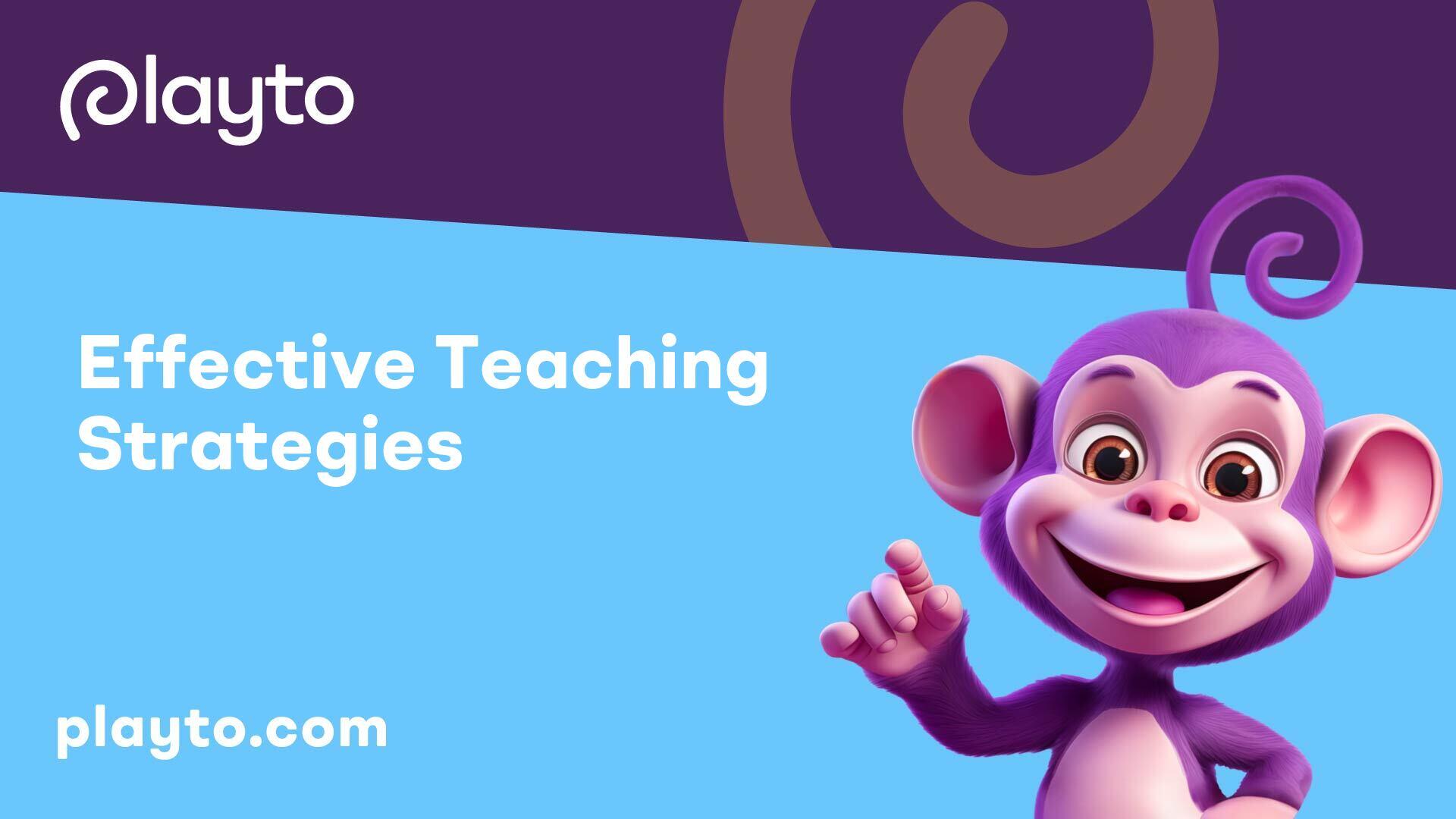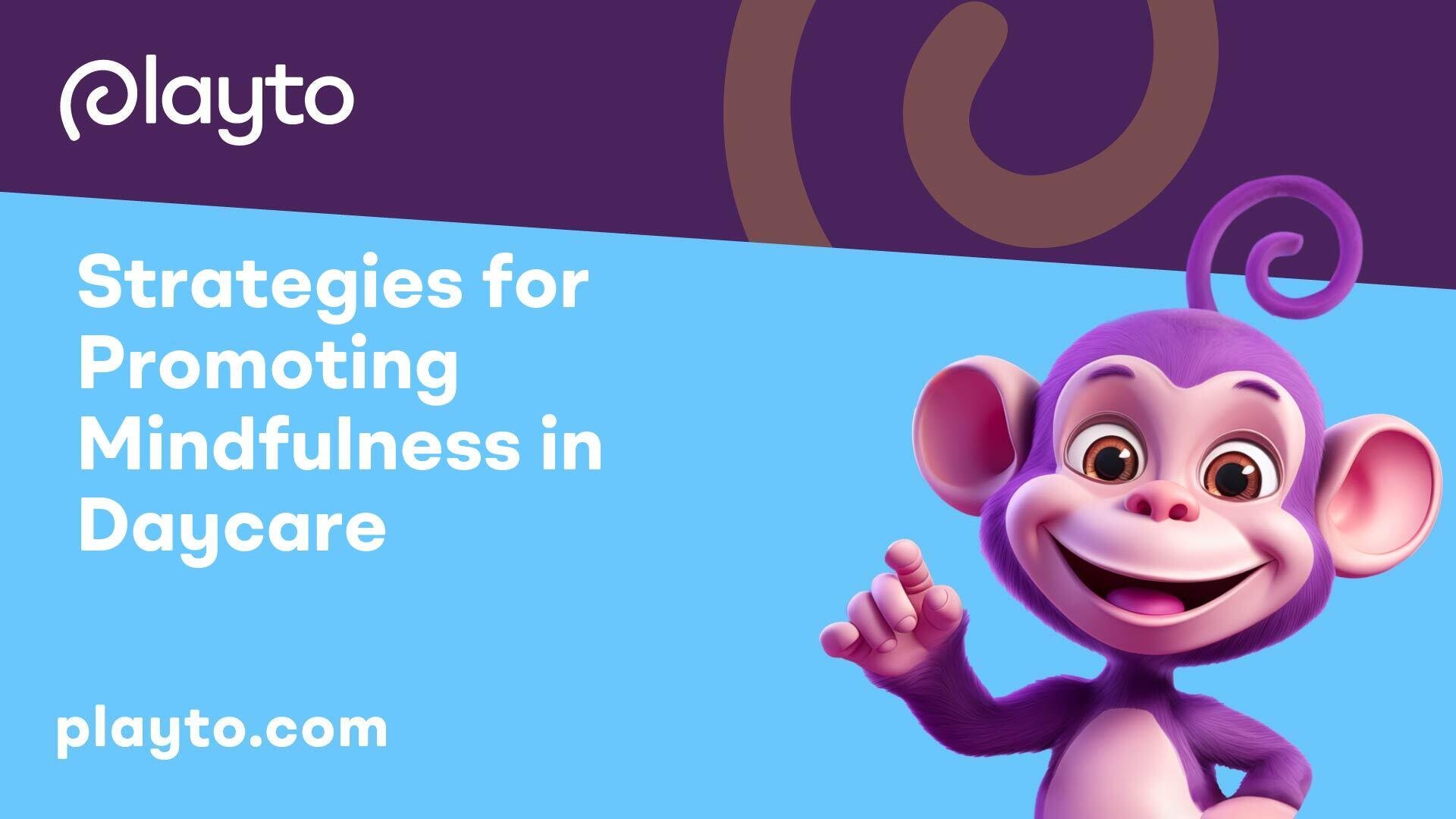
Effective Teaching Strategies
When it comes to promoting mindfulness in daycare settings, employing effective teaching strategies is essential for creating a nurturing and supportive environment for young learners. By focusing on flexibility, prioritizing health and safety, fostering self-respect in children, and setting individualized standards, educators can lay a solid foundation for mindfulness practices.
Flexibility in ApproaEffective Teaching Strategies
When it comes to promoting mindfulness in daycare settings, employing effective teaching strategies is essential for creating a nurturing and supportive environment for young learners. By focusing on flexibility, prioritizing health and safety, fostering self-respect in children, and setting individualized standards, educators can lay a solid foundation for mindfulness practices.
Flexibility in Approaches
To effectively promote mindfulness in daycare, teachers should embrace a flexible approach that considers the unique needs and abilities of each child. Being adaptable and responsive to the dynamics of the classroom enables educators to tailor their strategies to suit individual learning styles and preferences. By incorporating diverse teaching methods and adjusting their approach as needed, teachers can create engaging and impactful mindfulness experiences for children.
Prioritizing Health and Safety
Ensuring the well-being of children is paramount in any educational setting, including daycare environments. Prioritizing health and safety measures not only creates a secure and comfortable atmosphere for children but also sets the stage for effective learning experiences. By maintaining high standards of cleanliness, hygiene, and safety protocols, teachers can cultivate an environment that promotes mindfulness and emotional well-being.
Building Self-Respect in Children
Guiding children to develop self-respect is a powerful teaching strategy for fostering mindfulness and emotional intelligence. By employing positive guidance methods that encourage self-esteem and self-worth, educators can empower children to value themselves and their contributions. Building a culture of respect and affirmation within the daycare setting lays the groundwork for promoting positive behavior, emotional regulation, and healthy social interactions [2].
Individualized Standard Setting
Incorporating individualized standard setting is another effective teaching strategy for promoting mindfulness in daycare. By helping children establish personal benchmarks based on their own progress and achievements, teachers can nurture a sense of self-awareness and growth mindset. Encouraging children to focus on their personal growth rather than comparison with their peers fosters resilience, confidence, and a positive approach to learning. Emphasizing individual progress and celebrating small victories support children in their mindfulness journey.
By implementing these effective teaching strategies in daycare settings, educators can create a supportive and enriching environment that enhances children's mindfulness, emotional well-being, and overall development. Embracing flexibility, ensuring health and safety, nurturing self-respect, and focusing on individual growth contribute to a holistic approach to mindfulness education in early childhood.

Observational Skills
Developing strong observational skills is key for caregivers working in daycare settings, especially when focusing on promoting mindfulness among children. By carefully observing children during their daily activities, caregivers can gain valuable insights into their emotions, behaviors, and needs. In this section, we will explore two essential aspects of observational skills in daycare: observing artistic expression and enhancing personal awareness.
Observing Artistic Expression
When children engage in artistic activities, such as drawing, painting, or crafting, it provides a window into their thoughts and emotions. Caregivers should observe the individual ways children use art media, allowing them to express themselves freely and creatively. It's important for caregivers to explore the materials themselves but avoid making models for children to copy.
Through artistic expression, children often convey feelings that they may struggle to express verbally. By paying attention to the colors they choose, the subjects they depict, and their overall approach to art, caregivers can better understand the inner world of each child. Encouraging artistic expression not only promotes creativity but also serves as a mindfulness practice, allowing children to focus on the present moment and express themselves authentically.
Enhancing Personal Awareness
In addition to observing children's external behaviors, caregivers should also focus on enhancing their own personal awareness. Increasing awareness involves being mindful of one's thoughts, emotions, and reactions when interacting with children. Caregivers can increase their awareness by observing interactions and taking notes [2].
By understanding their own emotions and responses, caregivers can model positive behavior and emotional regulation for children. Emotionally intelligent caregivers who are self-aware can create a supportive and nurturing environment that promotes mindfulness and emotional well-being. This self-awareness also allows caregivers to respond thoughtfully to children's needs and effectively guide them towards developing their own emotional awareness and regulation skills.
Observing artistic expression and enhancing personal awareness are essential components of promoting mindfulness in daycare settings. By cultivating these skills, caregivers can create a nurturing environment where children feel seen, understood, and supported in their emotional and creative expressions. This in turn fosters a sense of mindfulness, emotional well-being, and personal growth among young children.

Mindfulness in Daycare
In a daycare setting, fostering mindfulness practices plays a crucial role in nurturing the emotional and cognitive growth of toddlers. Implementing mindfulness techniques not only benefits the children but also enhances the overall daycare environment. Let's explore mindfulness practices for toddlers, mindful parenting techniques, integrating mindfulness into daily routines, and the benefits of mindfulness programs.
Mindfulness Practices for Toddlers
Mindfulness practices for toddlers involve engaging activities that bring a child's attention to the present moment. These activities are essential for emotional and cognitive growth. Simple techniques such as deep breathing exercises, sensory awareness games, and guided imagery can help toddlers develop self-awareness, emotional regulation, and focus.
Mindful Parenting Techniques
Practicing mindful parenting techniques involves being present and engaged with your toddler. Understanding their needs, responding with awareness and compassion, and creating a nurturing environment benefits both the child and enhances the parent-child bond. By demonstrating mindfulness in interactions, parents contribute to the emotional well-being and development of their young ones.
Integration into Daily Routines
Mindfulness can be seamlessly integrated into daily routines in daycare. Activities like eating, bathing, or bedtime routines offer opportunities to infuse moments of mindfulness for toddlers. Transforming these ordinary activities into mindful practices helps children stay present, calm, and connected to their surroundings [3].
Benefits of Mindfulness Programs
By incorporating mindfulness programs into daycare practices, children receive the best care and education. Mindfulness for toddlers is essential for developing healthy, happy, and well-adjusted children. This approach provides lasting benefits throughout their lives when introduced through simple mindfulness activities. The integration of mindfulness in daycare not only promotes emotional well-being and cognitive development but also lays the foundation for resilience and adaptability in young children.
Enhancing Executive Functioning
In a daycare setting, implementing strategies to enhance executive functioning in children can have a profound impact on their overall development. Executive functioning skills, such as working memory, inhibitory control, and cognitive flexibility, play crucial roles in academic performance and social-emotional skills. Let's explore how mindfulness practices can contribute to enhancing executive functioning in young children.
Impact on Cognitive Performance
Mindfulness meditation has been shown to decrease stress and improve working memory capacities in children, as highlighted by research published by NCBI. By reducing stress levels and promoting mental clarity, mindfulness practices can positively impact cognitive performance and concentration in daycare attendees. This improved cognitive performance can translate into better focus, problem-solving abilities, and academic outcomes.
Stress Reduction and Cognitive Skills
Stress in childhood can have detrimental effects on cognitive performance and executive functioning skills. Mindfulness techniques, such as deep breathing and guided imagery, can help children manage stress and regulate their emotions effectively. By incorporating stress reduction practices into daily routines, daycare providers can create a nurturing environment that supports the development of cognitive skills and emotional well-being.
Mindfulness-Based Interventions
Mindfulness-based interventions have been identified as effective tools for fostering children's executive functioning skills. Research cited by NCBI indicates that mindfulness programs can significantly impact working memory and inhibitory control in children. By engaging in mindfulness exercises and activities, children can learn to focus their attention, regulate their impulses, and adapt to changing situations, all of which are essential components of executive functioning.
Integrating mindfulness practices into the daycare curriculum can provide children with the tools they need to navigate challenges, manage stress, and enhance their cognitive abilities. By creating a supportive environment that prioritizes mindfulness and emotional regulation, daycare providers can help children build a strong foundation for academic success and social-emotional well-being.
Emotional Well-Being Strategies
Promoting emotional well-being in children is a crucial aspect of daycare education. By incorporating strategies that encourage emotional expression, foster emotional vocabulary development, and implement mindfulness exercises for emotional regulation, daycare providers can create a nurturing environment for children to thrive emotionally.
Encouraging Emotional Expression
Caregivers play a vital role in modeling healthy emotional expression for children. By openly discussing feelings and demonstrating constructive ways to manage emotions, caregivers help children recognize and communicate their own emotions effectively. This practice promotes emotional normalization and creates a safe space where children feel comfortable sharing their feelings [5].
Emotional Vocabulary Development
Introducing children to a diverse range of emotional vocabulary empowers them to articulate their feelings from an early age. By incorporating emotional literacy into daily interactions, storytelling, and age-appropriate literature, children learn to identify and label their emotions effectively. Books, stories, and everyday situations serve as valuable tools to expand children's emotional vocabulary and encourage them to express themselves authentically.
Mindfulness Exercises for Emotional Regulation
Simple mindfulness exercises can be valuable tools for helping children regulate their emotions. Techniques such as deep breathing, counting, or guided imagery can assist children in calming down when they feel overwhelmed. By practicing self-soothing skills through mindfulness, children develop the ability to regulate their emotions and cope with challenging situations more effectively. These exercises encourage emotional stability and enhance children's overall emotional well-being.
Creating a nurturing environment that promotes emotional expression, fosters emotional vocabulary development, and integrates mindfulness exercises into daily routines can significantly impact the emotional well-being of children in daycare. By providing these essential strategies, daycare providers empower children to navigate their emotions confidently and develop crucial skills for lifelong emotional resilience.
Creating Safe Spaces
In a daycare setting, creating safe and nurturing environments is essential for promoting emotional well-being and fostering healthy emotional development in young children. Let's delve into three key strategies that daycare providers can implement to create safe spaces for children: Designated Calm Corners, Comforting Environments, and Play-Based Emotional Exploration.
Designated Calm Corners
To support emotional regulation and provide children with a safe space to process their feelings, daycare providers can establish designated 'calm corners' within the daycare facility. These corners are equipped with comforting items like pillows, books, or art supplies, allowing children to retreat and engage in quiet activities to calm themselves and reflect on their emotions.
Calm corners offer children a retreat where they can seek solace and privacy when feeling overwhelmed or emotional. By encouraging children to use these designated spaces, daycare providers promote self-soothing techniques and emotional awareness, helping children build resilience and cope with challenging emotions effectively.
Comforting Environments
Creating comforting environments within the daycare setting is crucial for nurturing a sense of security and well-being among children. Comforting environments involve using warm and inviting décor, soft lighting, and soothing colors to create a welcoming atmosphere for children. By surrounding children with elements that evoke a sense of comfort and safety, daycare providers can help reduce anxiety and promote emotional stability among young children.
Incorporating familiar objects and materials that children find comforting, such as favorite toys, blankets, or stuffed animals, can further enhance the sense of security within the daycare environment. These elements provide children with a sense of familiarity and stability, fostering a nurturing space where they can feel emotionally supported and cared for.
Play-Based Emotional Exploration
Engaging children in play-based activities that focus on exploring emotions is an effective way to promote emotional intelligence and facilitate emotional expression in a daycare setting. Play-based emotional exploration allows children to practice identifying and responding to different emotions, develop empathy, and enhance their emotional literacy in a fun and interactive manner.
Through role-playing, storytelling, and creative arts and crafts activities, children can freely express their emotions, learn to recognize emotional cues in themselves and others, and develop healthy coping mechanisms. Play-based emotional exploration not only encourages emotional self-awareness but also fosters social skills, empathy, and resilience in children, laying a strong foundation for their emotional well-being.
By incorporating Designated Calm Corners, Comforting Environments, and Play-Based Emotional Exploration into daycare practices, providers can create safe spaces that support children's emotional development, enhance their sense of security, and promote a positive and nurturing environment for growth and learning.
Mindfulness in Early Childhood
In the realm of early childhood development, fostering mindfulness can have a significant impact on emotional well-being, cognitive development, and resilience in young children. By introducing mindfulness practices at a young age, children can establish a strong foundation for navigating their emotions and developing crucial skills for the future.
Emotional Well-Being
Integrating mindfulness practices into early childhood programs creates a nurturing environment for children to explore and understand their emotions. Mindful activities such as breathing exercises, storytelling, and sensory play help children identify and manage their feelings effectively. This emotional awareness nurtures a sense of calm and self-regulation, laying the groundwork for healthier emotional well-being.
Cognitive Development
Mindfulness techniques play a vital role in enhancing cognitive development in early childhood. Practices like guided breathing and mindful group discussions promote concentration, focus, and cognitive flexibility. By engaging in mindfulness activities, children sharpen their cognitive skills, including attention, memory, and problem-solving abilities. These practices not only support academic learning but also aid in overall cognitive growth and development.
Resilience Building
Incorporating mindfulness into daily routines fosters resilience in young children, equipping them with the tools to navigate challenges and setbacks. Mindful practices encourage children to approach difficulties with a positive mindset and adaptability. By promoting resilience through mindfulness, children learn to bounce back from adversity, develop coping strategies, and build a strong sense of inner strength and perseverance.
Introducing mindfulness early on not only benefits the individual child but also contributes to the overall positive atmosphere of the daycare environment. By creating a culture of mindfulness, providers and caregivers can instill a sense of calm, empathy, and emotional intelligence in young children, setting the stage for continued growth and well-being. For more insights on nurturing emotional skills, consider exploring our article on parent involvement in daycare to further enhance the daycare experience for children.
Implementing Mindfulness
Incorporating mindfulness practices in daycare environments is essential for promoting emotional well-being and cognitive development in children. Implementing strategies for mindfulness requires a thoughtful approach that includes short mindfulness activities, nurturing emotional skills, and mindful communication exercises.
Short Mindfulness Activities
Simple mindfulness exercises play a vital role in helping children regulate their emotions and cultivate a sense of inner calm. Activities like deep breathing exercises, counting techniques, or guided imagery can be effective tools for helping children manage stress and anxiety [5]. By teaching children how to engage in these short mindfulness practices, daycare providers can empower them to self-soothe and regulate their emotions effectively.
Nurturing Emotional Skills
Creating a nurturing environment that prioritizes emotional skills development is fundamental for fostering resilience and empathy in children. Establishing designated "calm corners" equipped with comforting items like pillows, books, or art supplies provides children with a safe space to process their emotions [5]. Encouraging emotional expression and providing opportunities for play-based emotional exploration can enhance children's emotional vocabulary and promote self-awareness.
Mindful Communication Exercises
Mindful communication exercises help children develop active listening skills, empathy, and effective interpersonal interactions. By incorporating practices that promote mindful communication, such as reflective listening and validation of emotions, daycare providers can create a supportive and respectful communication environment [5]. Encouraging children to express themselves authentically and teaching them the value of compassionate communication can lead to enhanced social-emotional development.
Incorporating short mindfulness activities, nurturing emotional skills, and engaging in mindful communication exercises can significantly contribute to creating a mindful and emotionally supportive daycare environment. By prioritizing these strategies, daycare providers can help children develop essential emotional regulation skills, enhance their empathy and communication abilities, and foster a positive and nurturing space for growth and learning.
References
[1]: https://www.naeyc.org/resources/topics/dap/10-effective-dap-teaching-strategies
[2]: https://www.earlychildhoodspecialties.com/blog/positive-guidance-strategies-that-work-and-teach/
[3]: https://littlescholarsnyc.com/mindfulness-for-toddlers-simple-techniques/
[4]: https://www.ncbi.nlm.nih.gov/pmc/articles/PMC8657276/
[5]: https://www.childcareed.com/a/techniques-for-childcare-providers-to-promote-emotional-well-being-in-children.html
